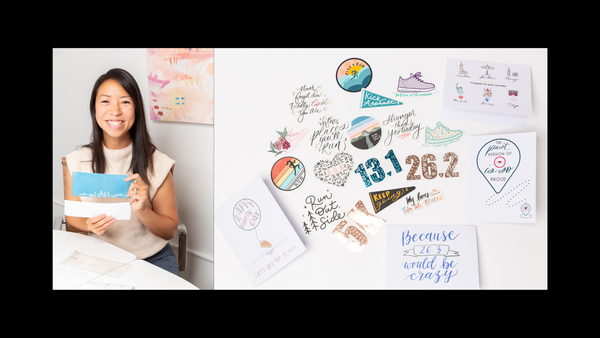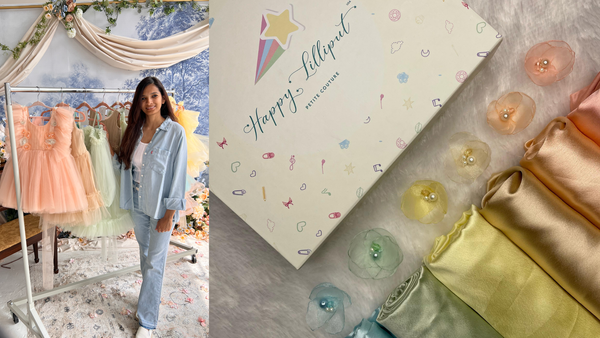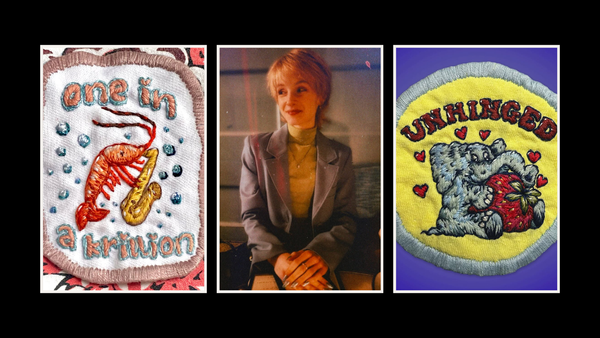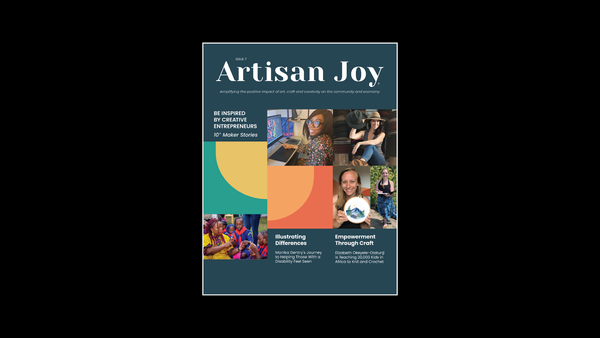Framing Success: How Lucie Voves Founded Church Hill Classics
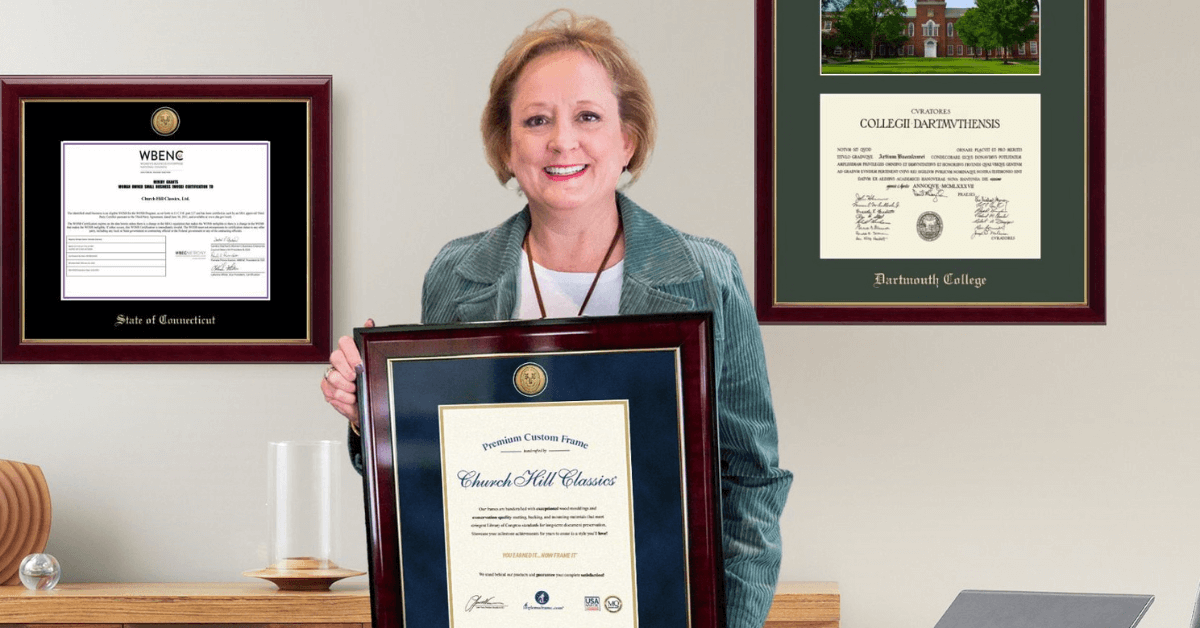
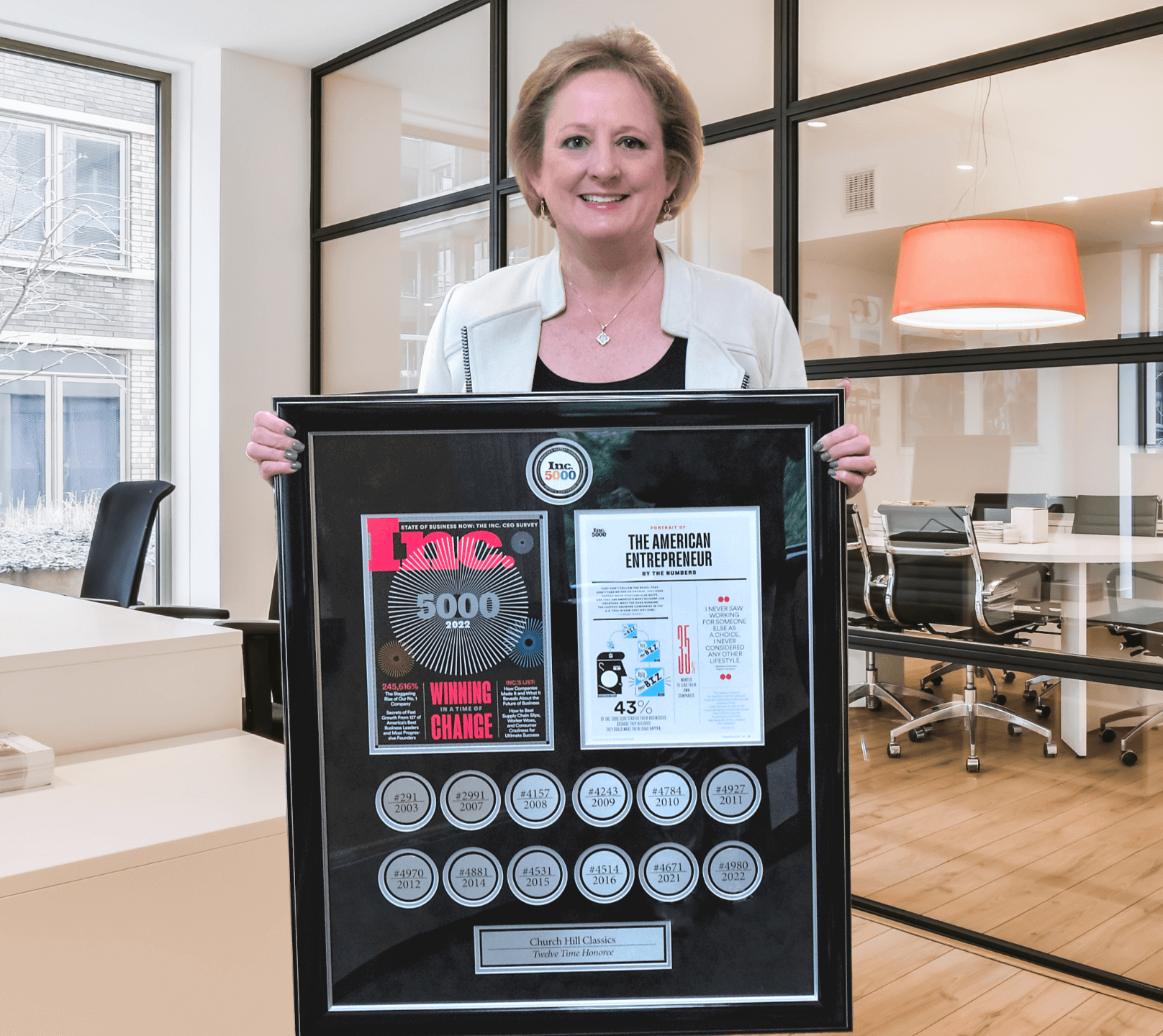
Founder Lucie Voves’ journey into the custom framing and art world began not with a business plan but with a sentimental search. Her company, Church Hill Classics, makes bespoke diploma frames, and it all started in her basement. Let’s hear from Lucie on her highly successful foray into handcrafted diploma frames.
How did you get started creating your art or creative product?
When I started Church Hill Classics 30 years ago in my home basement, I didn’t set out to create college diploma frames. In fact, my original intention was purely nostalgic: to find a framed illustration of a building that was near and dear to my heart, Dartmouth Hall. My husband Joe and I were college sweethearts. With so many amazing memories of our years at Dartmouth College, I really wanted something special to hang in my first corporate office. When I couldn’t find a print of Dartmouth Hall, I decided to commission the artwork myself in 1991.
It got me thinking that there had to be other Dartmouth alumni with the same sentimental desire, so I printed 500 lithographs, took a crash course in picture framing and set up a makeshift tabletop booth on a street corner at Dartmouth College over graduation weekend. The response was incredible! In fact, the artwork sold so well that other town merchants complained that I was cutting into their sales. I knew I was onto something.
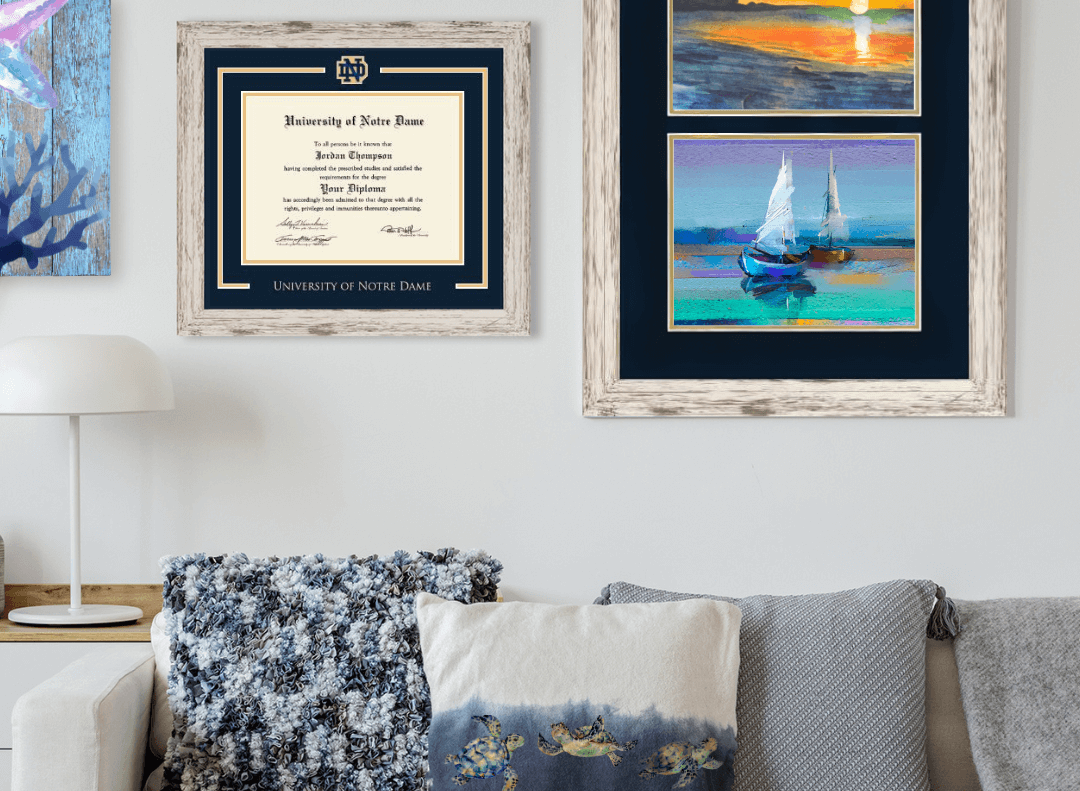
When did you realize that you could start a business?
My framed art grew in popularity, and I added other campus views when I started selling at The Dartmouth Co-op. Along the way, I heard from consumers who loved the art and asked if I would frame their diplomas to match. Darmouth degrees are in Latin, so they were interested in having “Darmouth College” embossed on the frame matting to show off their alumni pride in their offices and homes. I created my first diploma frames for Dartmouth and shortly thereafter expanded to sell licensed frames to Princeton, UConn, Yale, Syracuse and Williams College. It was then I took a leap of faith and quit my job at P&G.
From joining frames in my basement to embossing mats in my garage in 1991, today Church Hill Classics is housed in a 47,000-square-foot facility and manufactures custom diploma frames, certificate frames, award frames, and photo frames for thousands of colleges and universities, the U.S. Military, professional associations and prestigious business recognition programs, including the Inc. 5000 Awards.
How do you define success for your business?
Probably staying stateside when many of my rivals in the U.S. caved into the price pressure and moved their manufacturing overseas. If I wanted to join them, I knew I would have to buy subpar materials, lay off skilled artisans and sacrifice product quality as a result. I didn’t like those choices. I believe strongly in trying to keep jobs in the U.S. and in treating my employees fairly. Rather than join the price war, I prefer to outdo the competition with quality USA-made products, creative marketing and personalized customer service. I don’t see them catching up in those areas anytime soon.
Where do you find inspiration?
My team is simply amazing! Each designer, craftsperson, mounter, framer and shipper has a hand in the creation of every frame that leaves this building. I believe that’s the key ingredient to our success. Our priority is to create ‘WOW’ moments for our customers because we’re not just making frames; we’re helping them celebrate their milestone achievements. Graduations, birthdays, promotions, anniversaries, retirement—these are once-in-a-lifetime events that we’re truly honored to be part of.

What’s one piece of advice you wish someone had given you when you first started your business?
It’s critical to have passion for your idea and to make the necessary sacrifices and investments to get it off the ground. Venture funding is not easy to get, and it’s not a magic bullet. Ultimately, you have to prove out that your business model works and will deliver against planned expectations. If you can self-fund and start small to prove your concept, doors will open to support your growth needs, including traditional bank funding. This approach could be your key to scaling while retaining full or majority ownership.
What advice would you give to someone who wants to start selling their art or creative product?
Listen to the customer. During my first days working at a vendor table during Dartmouth graduation, requests kept coming for school name embossing on matching diploma frames. Imagine if I hadn’t listened to those requests. In times of challenge, the most important step I can take is one back to just listen to what customers, partners, and employees have to say and how they say it. Often, the willingness to listen opens doors to new possibilities and provides direction and clarity about how to proceed forward. More than anything, doing the right thing by the customer is what built us into the successful business we are today.
What’s something our audience would be surprised to learn about you?
I grew up in Oklahoma and always had an entrepreneurial streak. From lemonade stands and car washes as a kid, I always wanted to run my own business and learn the ins and outs of marketing. In college, I had two different startups. I began importing and selling African jewelry to local galleries and high-end boutiques. Then I started a candid party pictures business, which was so successful that I ended up selling it to a local businessperson after graduation! College really framed my future, literally and figuratively. It’s where I fell in love with my husband Joe and where and why I started Church Hill Classics in the first place.
As creatives, we can be continuously creating and refining our art. How do you handle perfectionism?
Beyond the early days of survival and proof-of-concept, scaling a company takes a different set of skills where you can’t sweat the small stuff and need to put your trust in your teammates. One of the most difficult elements of this is transitioning from hands-on entrepreneur where you do it all to enterprise-builder. It’s hard to let go, but the ability to embrace change and not micro-manage or focus on minutiae. That requires building a team of capable leaders who are stronger in their respective areas than you are and can collectively take the company to new heights.
What’s something that surprised you about running a creative business?
Probably what surprised me most was what happened during the global pandemic. In March 2020, millions of college students were sent home, campus bookstores closed and grad fairs and commencements were being canceled across the country. Our peak sales period—spring graduation—was quickly diminishing. We had to shut down for everyone’s safety. When we reopened our facility a few months later, I was floored. Online traffic surged to record numbers and continued into late summer. I’ve never seen anything like it in our 30-year history.
In 2020, we sold 70% more diploma frames than we did in 2019. At one point, there were more than 18,000 diploma frame orders in the queue waiting to be handcrafted. Now, keep in mind that each frame is made-to-order and built by our onsite team, which was now much smaller and practicing social distancing! But as the mother of a Class of 2020 student, it all made sense. With the loss of in-person ceremonies, parents were still looking for meaningful ways to honor this major milestone. And though our team may have been small, they were mighty and helped create ‘WOW’ moments for so many families!
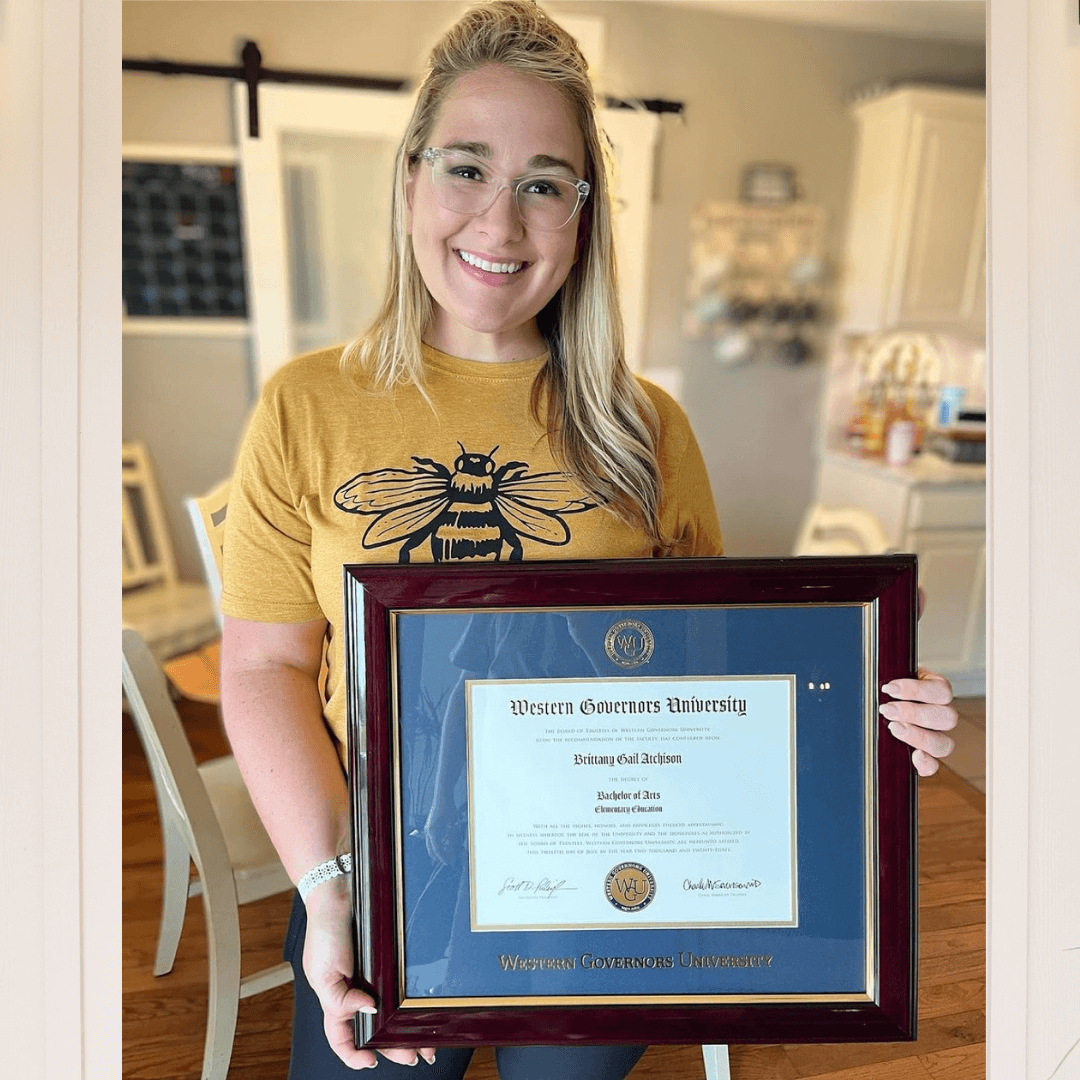
What’s your advice for handling the highs and lows of running a business?
As a business owner, I’ve learned that the key to overcoming obstacles and weathering the storm is a willingness to adapt and embrace change. In times of challenge and difficulty, find your cheerleaders! During rough patches, I recognize that I have many people who are on my side and eager to help me build this success story. I’ve benefitted tremendously over the years from peer advisory groups, including the Women Presidents’ Organization, Entrepreneurs Organization and Women’s Business Enterprise National Council. I gained access to great speakers and mentors and also built a peer group of like-minded entrepreneurs. These resources have contributed significantly to my personal and professional growth.
Has someone ever criticized your work? How did you handle it?
I think something we hear a lot is, ‘Why are diploma frames so expensive?’ But nothing is mass-produced in our facility or premade. It’s all customized and made-to-order according to each customer’s specifications as soon as we receive the order. Our in-house team of master framers and skilled artisans cut, measure and join every moulding. They measure and hand-cut each piece of glass. They emboss official logos and school names in gold or silver foil with expert precision. Next, technicians with decades of experience carefully assemble each frame by hand. Then, our team cleans and thoroughly inspects every framing component. We’ll never sacrifice quality for speed. Plus, we carry licensed products, and all authorized merchandise must adhere to strict brand identity standards and premium mouldings, UV-protective glass and archival-quality mats. These aren’t cheap hobby shop frames; they’re artisanally crafted.
What’s a cause you are passionate about?
Church Hill Classics is a certified Woman-Owned Small Business (WOSB) and Woman Business Enterprise (WBE) through the Women’s Business Enterprise National Council, so I’m very passionate about Buy Woman-Owned and Shop Woman-Owned initiatives. We promote other woman-owned businesses in our graduation gift guides because I believe in empowering. I also serve on the Enterprising Women advisory board and am a sponsor of their foundation, which hosts a series of mentoring events around the U.S. to connect high school girls with an interest in STEM with female entrepreneurs in their community. We are also the exclusive awards vendor for the Enterprising Women of the Year Awards.

Can you share the name of a supplier or vendor that you use for your business that you just love—one that makes running your business a bit easier?
While our artisans all work onsite, our marketing department works remotely, and our sales team and customer service members have been hybrid since 2020, so ensuring we’re all aligned at all times is critical. We attend weekly marketing Zoom huddles, daily creative meetups and Slack each other when we need quick, real-time answers. One tool I could not live without is goal management software Rhythm Systems, which helps us track KPIs, take ownership of weekly goals, report on strategic wins and marketing campaigns and make quarterly plans. It keeps us all rowing forward in perfect alignment—no matter where we’re working from—promoting employee ownership, performance and accountability.
What brings you joy?
I love to travel, so going on family vacations with my husband and four children is something that I truly cherish. It’s important to balance my strong do-whatever-it-takes grounding as an entrepreneur with personal priorities, including my family, free time and friends. The counterbalance helps me stay mentally fresh, open to inspiration, and fully engaged in a rich personal life.
Thanks, Lucie! You can learn more about Church Hill Classics at www.diplomaframe.com.
Editor’s Note: This interview has been edited for length and clarity.

